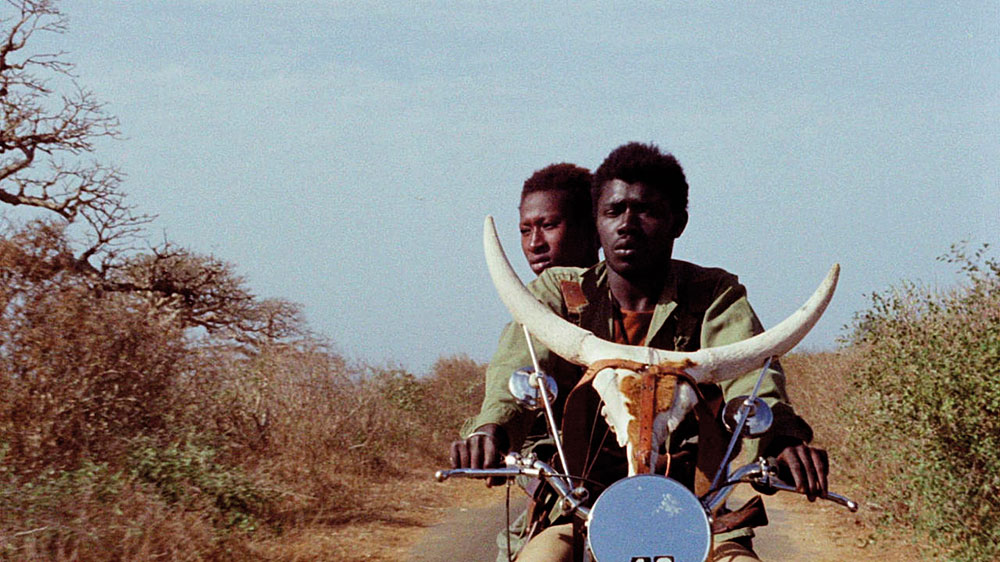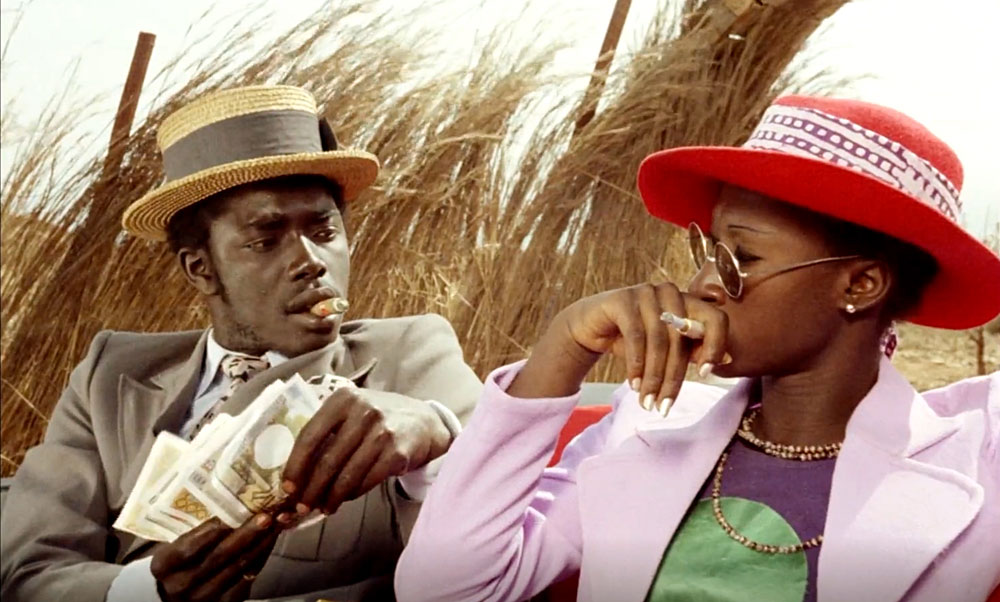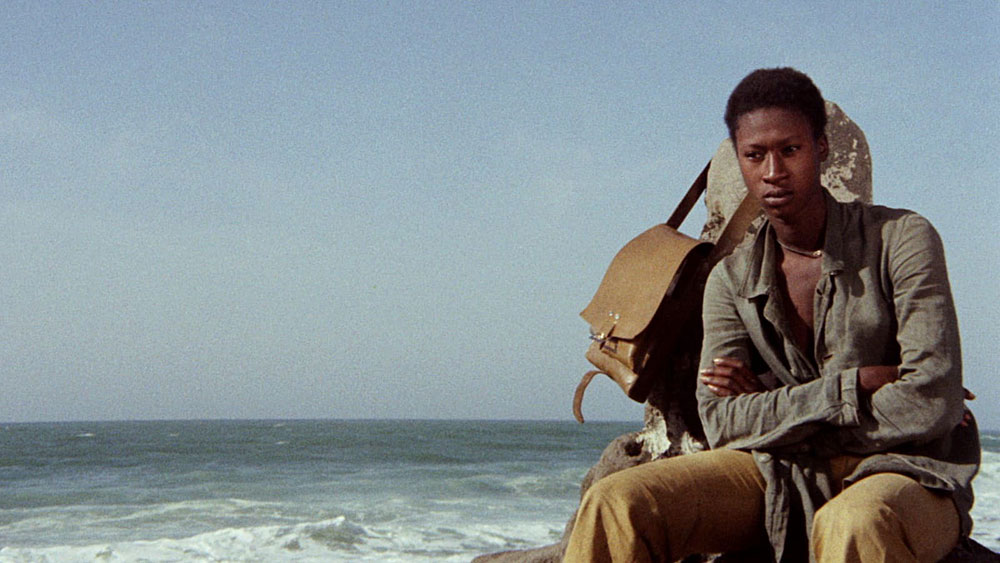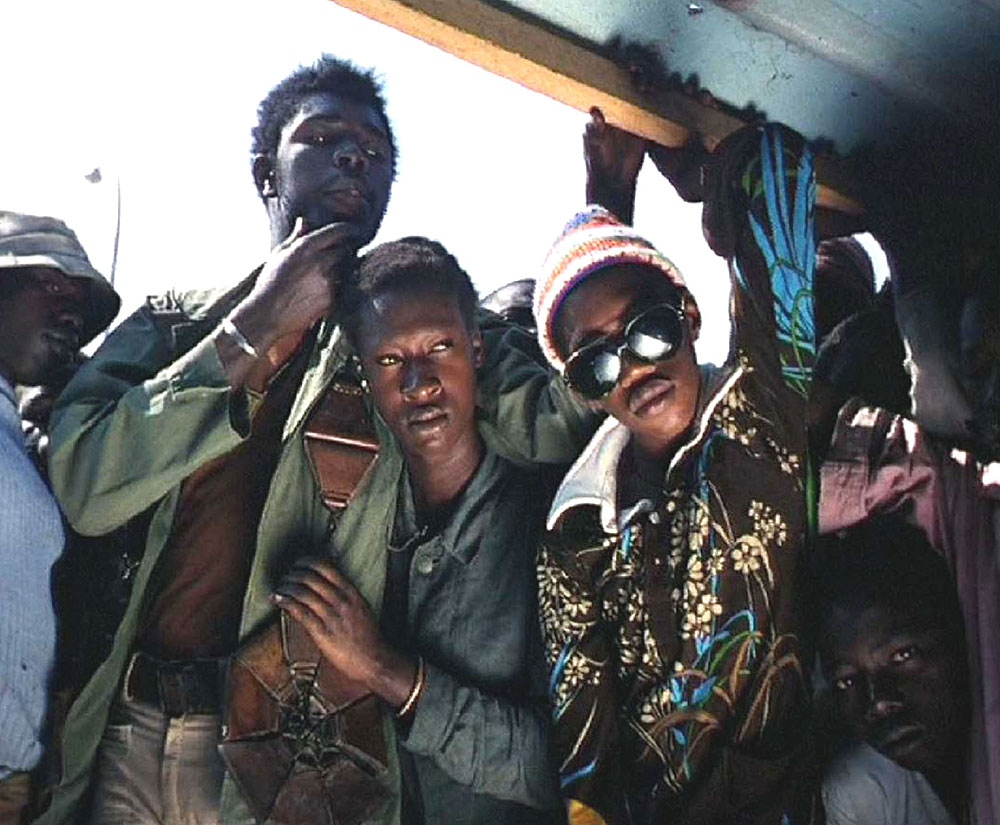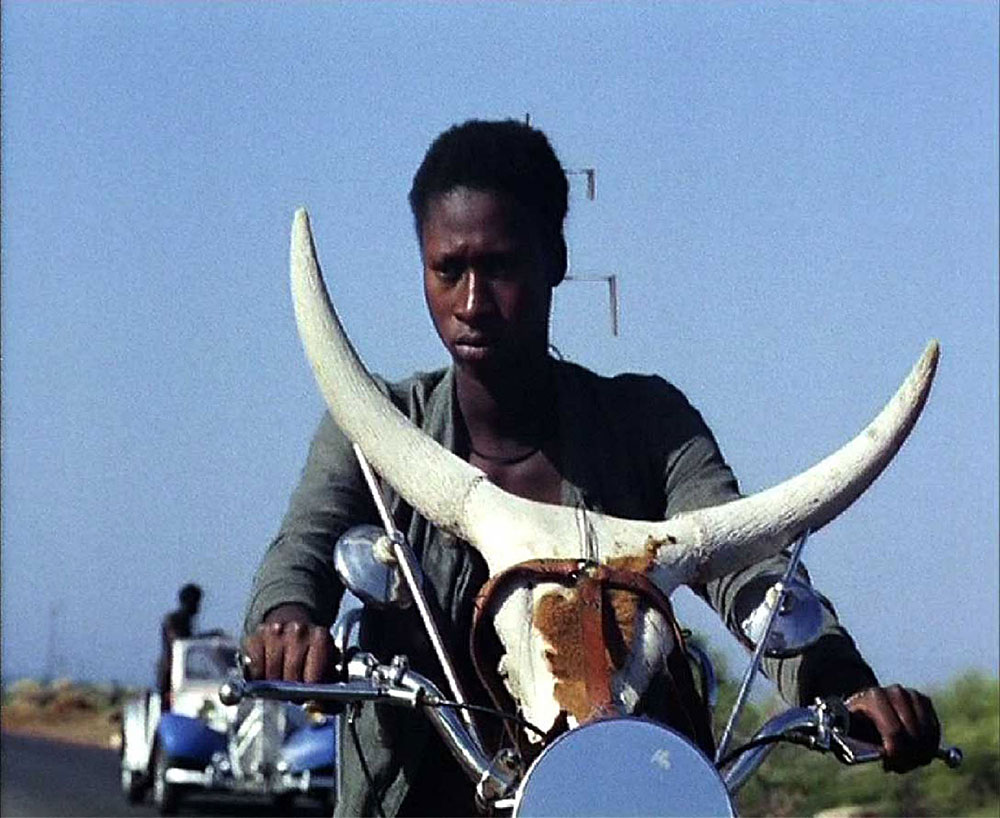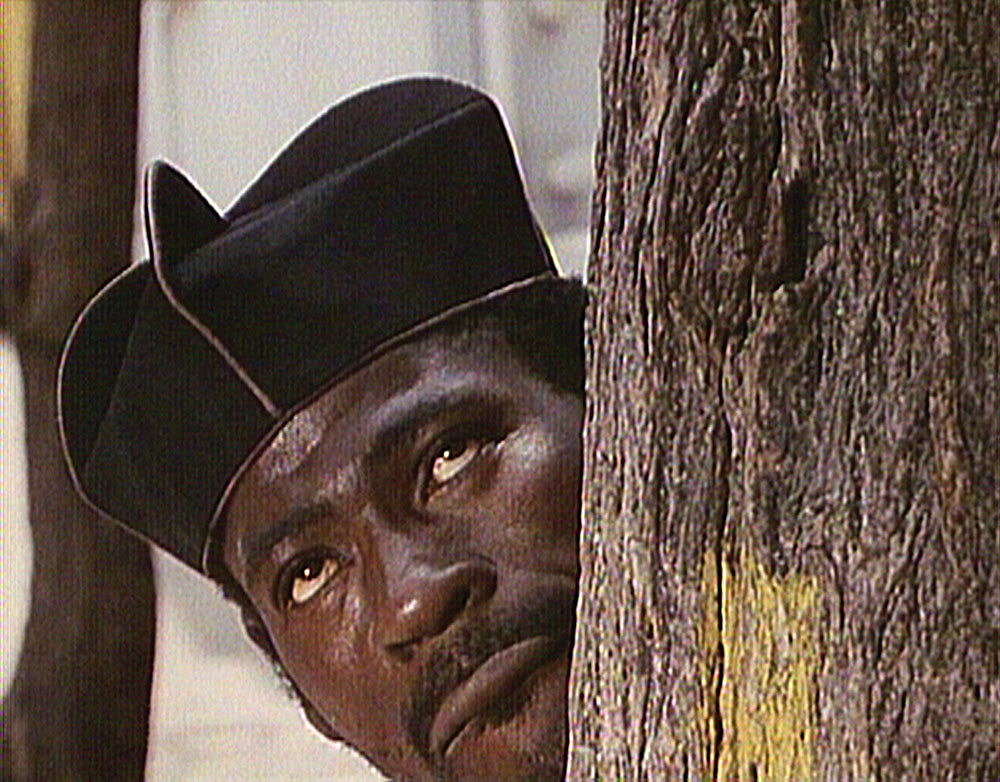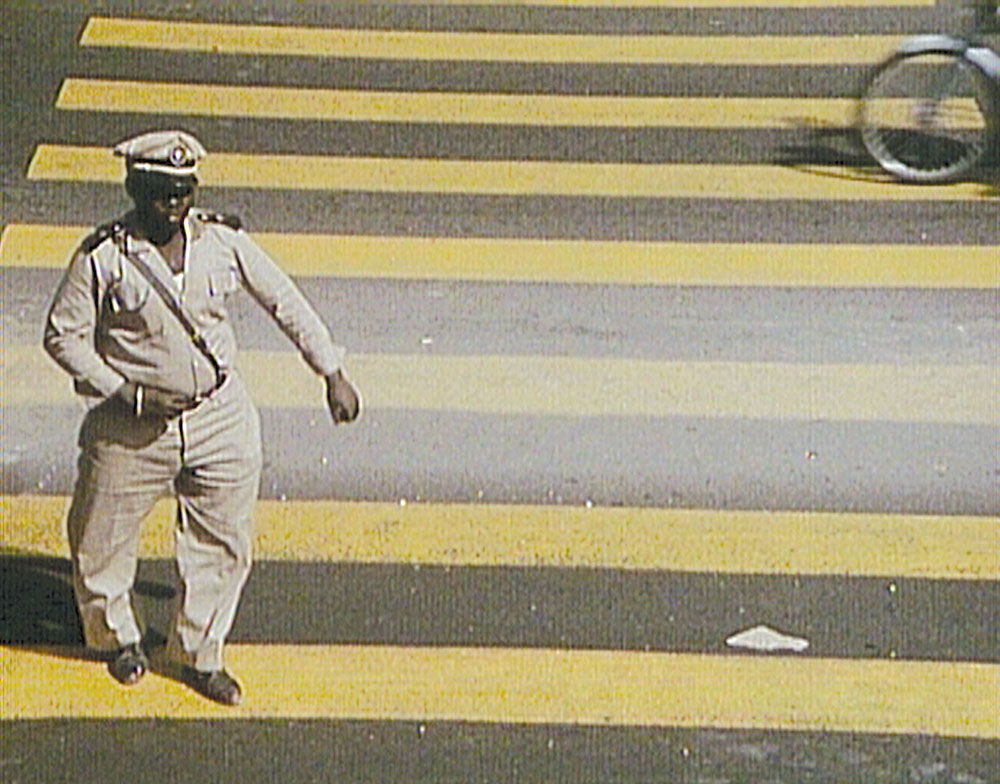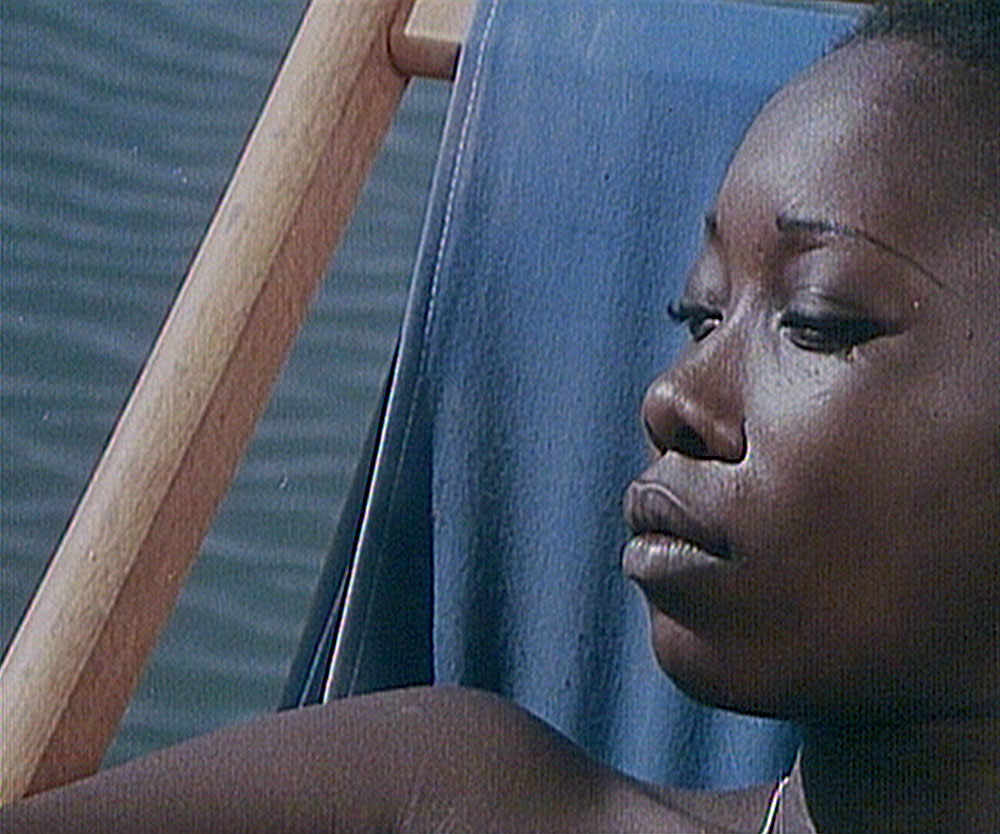With its striking jump cut editing, primal sounds and rough footage, the film brutally and genuinely depicts Dacar and the life there. Kinotrip’s screening upon the film’s fiftieth anniversary.
Let film take you under the free sun!
»The characters of Touki Bouki are interesting to me because their dreams are not those of ordinary people. Anta and Mory do not dream of building castles in Africa; they dream of finding some sort of Atlantis overseas. Following their dream permitted me to follow my own dreams, and my way of escaping those dreams was to laugh at them. Mory and Anta’s dreams made them feel like foreigners in their own country. So they were marginalized people, in that respect.«
– Djibril Diop Mambéty
»I was captivated by the film because it is something completely different from any other film I have ever seen. The way the scenes were sequenced gave me the feeling of a narrative, like reading a book with a lot of metaphors. Now I understand why the director says he imagines his creative muse as "an African grandmother who can tell stories like any grandmother under the moonlight". Film from Africa is also a novelty for me. It was extremely interesting for me to walk through the film in a foreign country that we may not see on screen very often. And even though the film is 50 years old, it is still relevant for our generation, because it shows aspects of youth: love, rebellion, dreaming of a better world, freedom and what we would do for it.«
– Mija Kolarič, member of the 8th Kinotrip generation
The film was restored in 2008 by the World Cinema Foundation in cooperation with Djibril Diop Mambéty’s family. The restoration was conducted at the Cineteca di Bologna/L’Immagine Ritrovata laboratory. The funds were provided by Armani, Cartier, Qatar Airways and Qatar Museum Authority.
